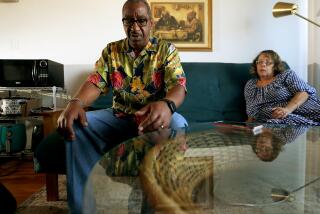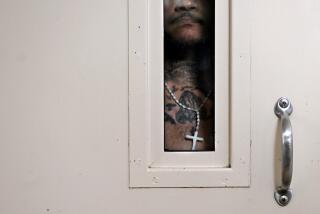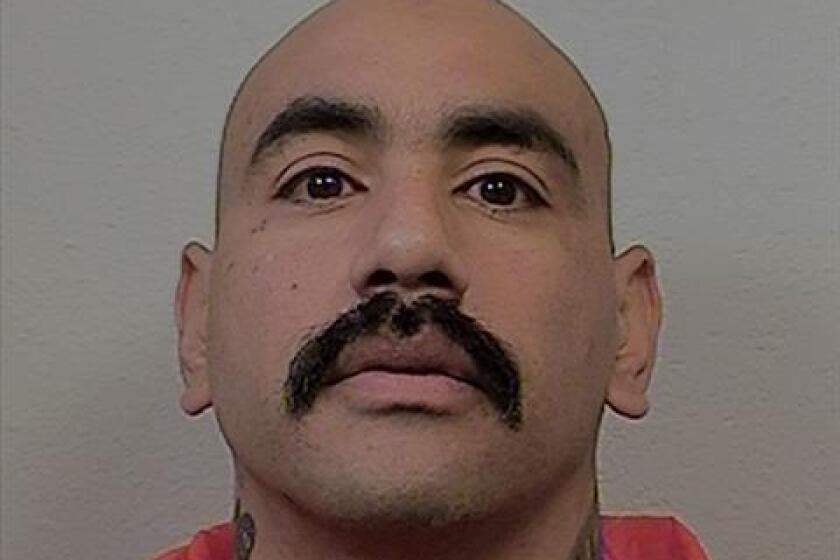Prison lockdowns and influenza symptoms spread, along with call for early releases
Early release from prison is on the table as a state task force begins discussions on how to navigate California’s incarcerated population through the coming storm of the novel coronavirus.
U.S. District Judge Kimberly Mueller on Friday ordered the task force during a telephone status hearing. The hearing was for updates on prison mental health but instead dwelt almost entirely on COVID-19. The task force’s first meeting was Saturday, involving lawyers for the governor’s office, corrections department, Department of State Hospitals and those representing prisoners in long-running litigation over prison conditions.
At Mueller’s direction, said plaintiff’s attorney Michael Bien, “population is on the table.”
The corrections department has steadfastly declined to answer questions about how many inmates are under watch with influenza-like illness, how many have been tested for COVID-19 and how many are under quarantine.
After a decade of sustained effort to reduce health-threatening overcrowding, California’s prison system remains at 134% capacity, with more than 114,000 inmates in state prisons built to hold 85,000. Another 8,700 prisoners are in camps and contracted private lockups.
Despite mounting pressure from civil liberties groups such as the ACLU and advocates for inmates, prison systems across the United States have so far resisted calls to reduce their COVID-19 threats by releasing prisoners. Jail systems, however, have adopted such programs, including those in Los Angeles, Alameda, Santa Clara and San Francisco counties.
The state repeatedly has staved off federal court threats to order inmate releases with major changes in sentencing laws, a shift of low-risk offenders to county jails and cancellation of contracts for out-of-state private prisons. During that litigation, the state has crafted policies for early release and lists of prospective prisoners, looking at those who are elderly, frail or close to finishing their sentences.
As of Saturday, the California Department of Corrections said that no inmates have yet tested positive for COVID-19, though it announced three employees were infected — two at the California Institution for Men and one at California State Prison-Sacramento, located outside Folsom. A San Quentin State Prison employee who previously was reported to have tested positive ultimately was a negative case, the department said.
Some 1,800 inmates were affected when two cellblocks at San Quentin were put on lockdown because of reports of influenza-like illness. Internal documents obtained by The Times show multiple blocks at the California Health Care Facility, the state’s medical prison outside Stockton, locked down a week ago for “influenza like illness.”
The Sacramento Bee has reported other inmates being monitored for possible COVID-19 at Mule Creek State Prison.
Corrections officials have progressively taken steps to reduce the spread of the novel coronavirus in California prisons, halting visitation, volunteers and education programs, and screening employees for infection risk at the entrance.
A department memo filed in federal court showed transfers between prisons were also largely halted, though prisoners in need of mental health crisis care were still being moved around the state. Documents obtained by The Times, for instance, show inmates arriving one day last week at the Stockton facility from four prisons, including San Quentin.
Prison medical workers have been instructed to use only regular surgical masks around prisoners quarantined with influenza-like illness, not the higher-quality N95 masks.
A nurse at the state medical facility, speaking anonymously because she feared retribution for making a public comment, said she is worried about the safeguards in place while working among patients on “COVID-19 surveillance rounds.”
“We do not have any masks, not even the flimsy masks,” she said.
The California Department of Corrections and Rehabilitation issued a statement Saturday evening clarifying its position on protecting its inmate population and empolyees against the spread of the coronavirus.
“We are continuously evaluating and implementing proactive measures to help prevent the spread of COVID-19 and keep our CDCR population and the community-at-large safe,” the department said. “Additional measures will continue to be developed based on the rapidly-evolving situation. Our top priority is the safety and security of the incarcerated population and the public.”
More to Read
Sign up for Essential California
The most important California stories and recommendations in your inbox every morning.
You may occasionally receive promotional content from the Los Angeles Times.







